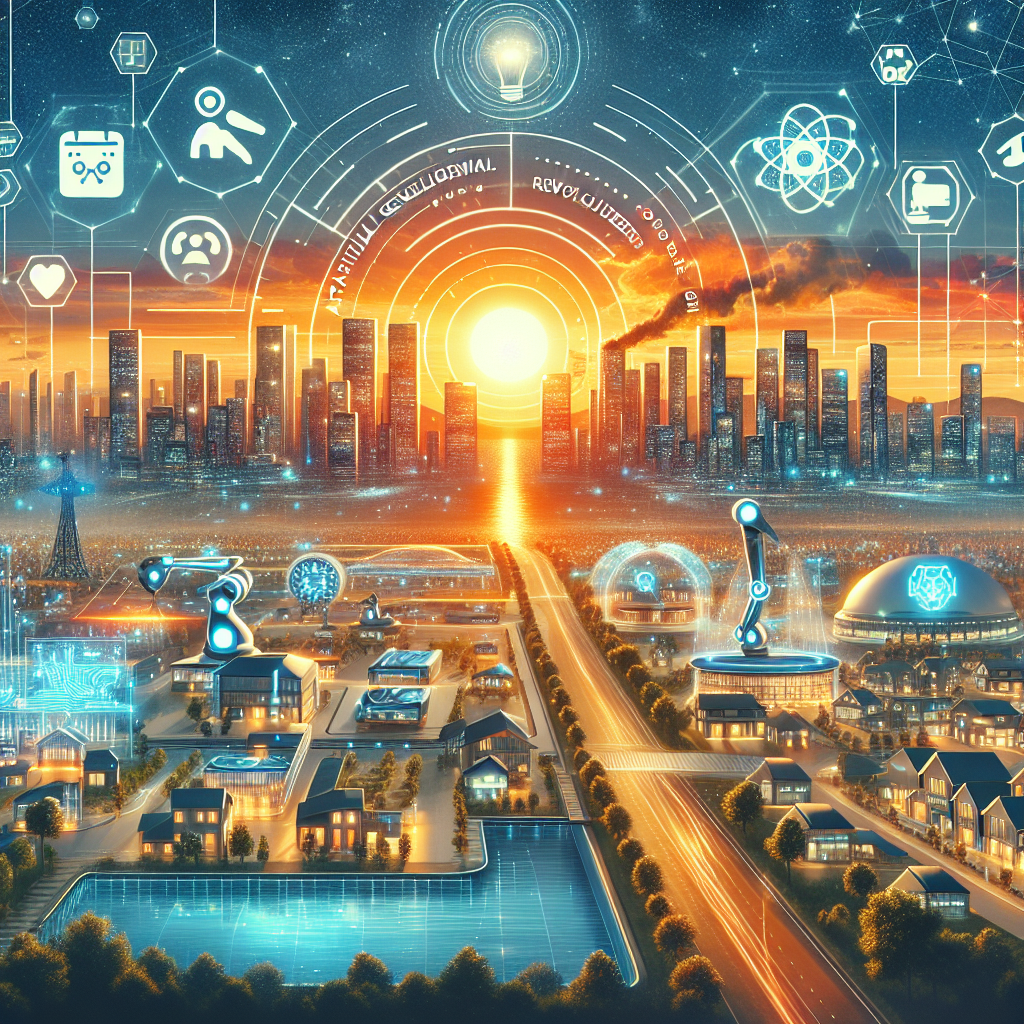Artificial General Intelligence (AGI) has long been a dream of scientists and technologists alike. The idea of creating a machine that can think and learn like a human being has captured the imagination of many, and the potential impact of AGI on society is immense. In this article, we will explore the potential of AGI and how it could revolutionize the way we live and work.
What is AGI?
Artificial General Intelligence, or AGI, refers to a type of artificial intelligence that possesses the ability to understand, learn, and apply knowledge in a way that is similar to human intelligence. Unlike narrow AI systems, which are designed for specific tasks, AGI is capable of performing a wide range of tasks and adapting to new situations without human intervention.
The development of AGI is seen as a major milestone in the field of artificial intelligence, as it represents a significant step towards creating machines that can think and reason like humans. While current AI systems excel at specific tasks such as image recognition or speech synthesis, they lack the ability to generalize and adapt to new situations in the same way that humans can.
The Potential of AGI
The potential impact of AGI on society is vast, and it has the power to revolutionize the way we live and work in ways that are difficult to imagine. Here are some of the key ways in which AGI could transform our world:
1. Automation of Tasks: One of the most immediate impacts of AGI will be the automation of tasks that are currently performed by humans. AGI systems will be able to perform a wide range of tasks more efficiently and accurately than humans, leading to increased productivity and cost savings for businesses.
2. Improved Decision Making: AGI systems have the potential to make better decisions than humans in a wide range of situations. By analyzing vast amounts of data and considering multiple factors simultaneously, AGI systems can make more informed and rational decisions than humans, leading to better outcomes in areas such as healthcare, finance, and governance.
3. Personalized Services: AGI systems can be used to provide personalized services to individuals in a way that is not currently possible. By analyzing data about a person’s preferences, habits, and needs, AGI systems can tailor services and products to meet the specific needs of each individual, leading to a more personalized and efficient experience.
4. Scientific Discovery: AGI systems have the potential to accelerate scientific discovery by analyzing vast amounts of data and identifying patterns and relationships that are not immediately apparent to human researchers. By automating the process of hypothesis generation and testing, AGI systems can help scientists make breakthroughs in areas such as medicine, materials science, and climate research.
5. Creative Innovation: AGI systems can be used to generate creative ideas and solutions to complex problems. By combining data from diverse sources and applying advanced algorithms, AGI systems can come up with novel solutions that humans may not have considered, leading to innovations in areas such as art, design, and engineering.
6. Enhanced Communication: AGI systems have the potential to revolutionize communication by enabling more natural and intuitive interactions between humans and machines. By understanding human language and emotions, AGI systems can facilitate more meaningful and engaging conversations, leading to improved collaboration and productivity.
FAQs
Q: What are the ethical implications of AGI?
A: The development of AGI raises a number of ethical concerns, including issues related to privacy, security, bias, and job displacement. It is important for developers and policymakers to address these concerns proactively to ensure that AGI is developed and deployed in a responsible and ethical manner.
Q: Will AGI replace human workers?
A: While AGI has the potential to automate many tasks currently performed by humans, it is unlikely to completely replace human workers. Instead, AGI is likely to augment human capabilities and enable us to focus on more creative and strategic tasks, leading to a more productive and fulfilling work environment.
Q: How far are we from achieving AGI?
A: The development of AGI is a complex and challenging task, and it is difficult to predict exactly when it will be achieved. Some experts believe that AGI could be achieved within the next few decades, while others believe that it is still many years away. Regardless of the timeline, it is clear that AGI has the potential to revolutionize the way we live and work in profound ways.
In conclusion, the potential of AGI to revolutionize the way we live and work is immense. From automation of tasks to improved decision making, personalized services, scientific discovery, creative innovation, and enhanced communication, AGI has the power to transform every aspect of our lives. While there are ethical concerns and challenges to overcome, the development of AGI represents a major milestone in the field of artificial intelligence and has the potential to usher in a new era of progress and innovation.

